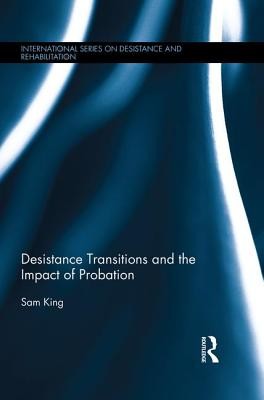
- We will send in 10–14 business days.
- SAVE -10% with code: EXTRA
Reviews
Description
Moving away from criminal behaviour can be fraught with difficulties. Often it can involve leaving behind old habits, customs, and even friends, while at the same time adopting a new way of life. How do individuals go about making a decision to give up crime? How do they plan to sustain this decision? And in what ways does probation help? This book explores these questions.
Based on in-depth interviews with a group of men under probation supervision, Sam King investigates the factors associated with making a decision to desist from crime. The book examines strategies for desistance, and explores the factors that individuals consider when they are thinking about how they will desist. In doing so, the book sheds new light on existing understandings of desistance from crime and helps to develop our understandings of the role that individuals play in constructing their own desistance journeys. This book also highlights the role of probation in this process, offering a timely and critical review of the nature of probation under the New Labour government in the UK between 1997-2010.
The findings indicate that we should allow Probation Officers greater autonomy and discretion within their roles, and that we should free them from the bureaucracy of risk assessment and targets. Moreover, the book warns against the potential fragmentation of community supervision. As such, the book will be of interest to criminology students, researchers, academics, policymakers and practitioners, particularly those who work with ex-offenders in the community.
EXTRA 10 % discount with code: EXTRA
The promotion ends in 21d.08:08:30
The discount code is valid when purchasing from 10 €. Discounts do not stack.
- Author: Sam King
- Publisher: Routledge
- Year: 2015
- Pages: 240
- ISBN-10: 1138922374
- ISBN-13: 9781138922372
- Format: 15.6 x 23.4 x 1.3 cm, minkšti viršeliai
- Language: English English
Moving away from criminal behaviour can be fraught with difficulties. Often it can involve leaving behind old habits, customs, and even friends, while at the same time adopting a new way of life. How do individuals go about making a decision to give up crime? How do they plan to sustain this decision? And in what ways does probation help? This book explores these questions.
Based on in-depth interviews with a group of men under probation supervision, Sam King investigates the factors associated with making a decision to desist from crime. The book examines strategies for desistance, and explores the factors that individuals consider when they are thinking about how they will desist. In doing so, the book sheds new light on existing understandings of desistance from crime and helps to develop our understandings of the role that individuals play in constructing their own desistance journeys. This book also highlights the role of probation in this process, offering a timely and critical review of the nature of probation under the New Labour government in the UK between 1997-2010.
The findings indicate that we should allow Probation Officers greater autonomy and discretion within their roles, and that we should free them from the bureaucracy of risk assessment and targets. Moreover, the book warns against the potential fragmentation of community supervision. As such, the book will be of interest to criminology students, researchers, academics, policymakers and practitioners, particularly those who work with ex-offenders in the community.


Reviews